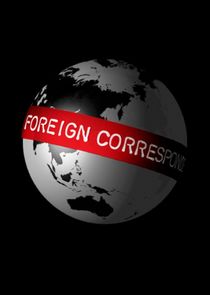Foreign Correspondent S2018E10 - To Burn or Not To Burn

Sinopse
There's a new push in Australia to build incinerators to burn our waste. Is this the way to go? Those clever Swedes think so. Foreign Correspondent sends War on Waste's Craig Reucassel to Sweden to investigate.
As Australia grapples with growing piles of waste, the idea of burning it is getting some heavyweight backers, the federal energy minister among them.
So will incineration work? Can it be clean? Is it cost-effective?
And if we invest in this technology at a time when China has stopped taking a lot of our recyclables, will this mean our recyclables end up being burnt?
Sweden is held up as a leader in managing waste. And as one of the world's biggest innovators, it's also one of the biggest incinerators.
So War on Waste's Craig Reucassel goes to Sweden to see if it holds the solution to Australia's waste crisis.
The Swedes only landfill one per cent of their waste and their government goes so far as to claim a phenomenal 99 per cent recycling rate. In many places, their food waste is collected and made into bio-fuel for their Volvos.
In the capital Stockholm, each time their kerbside wheelie bins are emptied, a sensor beeps and the household gets billed. So if they put their bins out less, they pay less. "We save money just by sorting our garbage," says resident Sara Jarnhed.
But the centrepiece of Sweden's waste management strategy is its chain of 34 vast waste furnaces that turn waste into energy for power and heating.
Sweden even makes about $100 million a year from importing waste, burning thousands of tonnes from Britain and other countries who don't know what else to do with it – and pay Sweden to get rid of it.
Problem solved? Not so fast. As Australia considers whether to go down the incineration road, Craig Reucassel follows the waste trail in Sweden to discover that we do have plenty to learn from Sweden's experience - but not all of it is good.
Presenter - Craig Reucassel
Producer - Deborah Richards
Camera - Mathew Marsic
Editor - Nikki Stevens
Executive Producer - Marianne Leitch
Informações
- Status: Transmitido
- Data de Exibição: 14/08/2018
- Duração do Episódio: 30 minutos
- Emissora:
 ABC
ABC